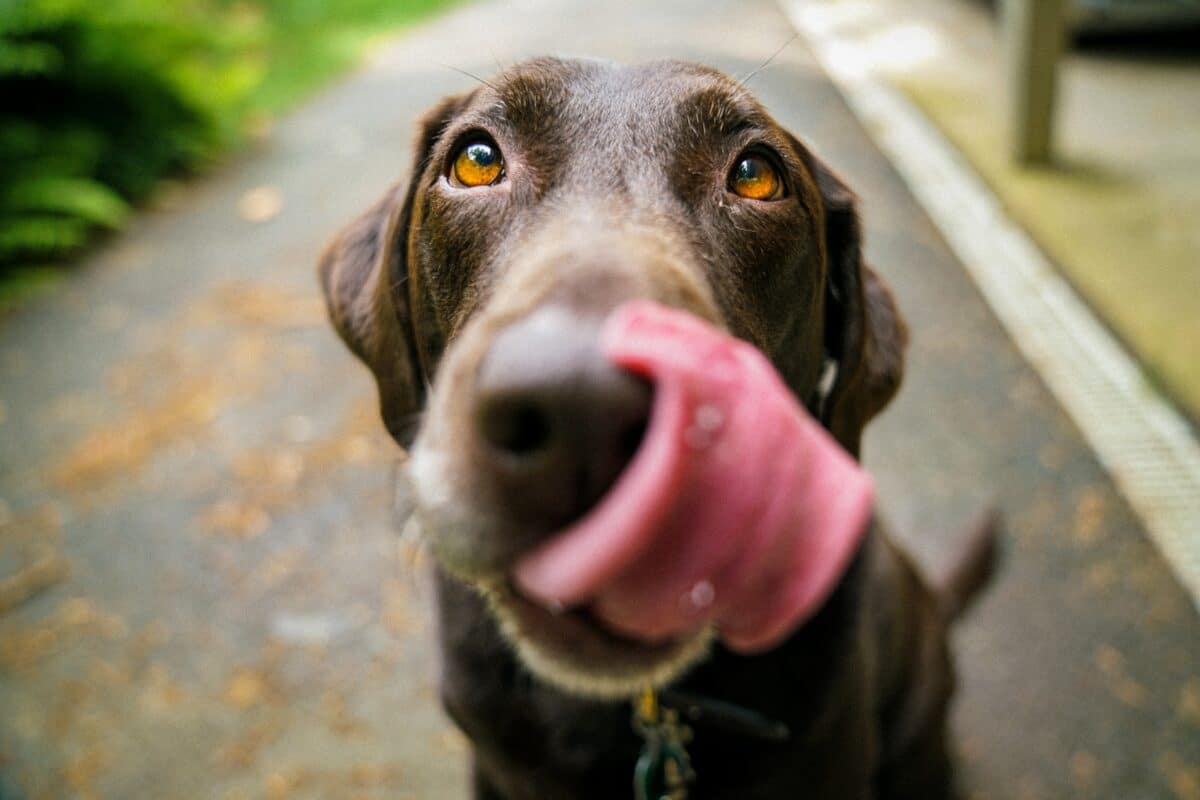Can dogs eat peanuts? While the simple answer is “yes,” there are a few important caveats and details to remember before feeding your dog peanuts.
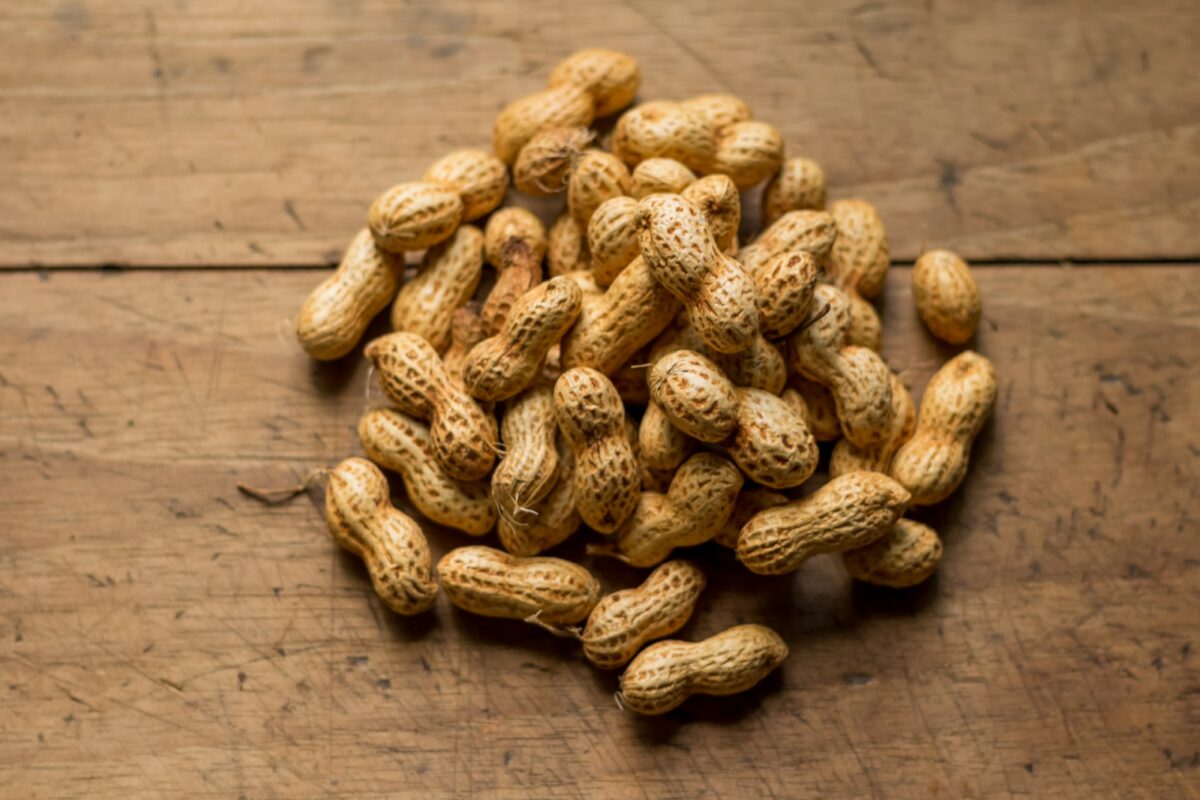
Dogs are entirely dependent on us when it comes to their diet and nutrition (except for the odd piece of scrap they’ll sniff out on their walks.) Their diet is one of the key factors that determine your furry companion’s life span. Naturally, you want your best friend to stay with you for as long as possible, so feeding them correctly should be one of your top priorities.
Although peanuts contain many nutrients that are good for your dog, they should be given to them only in small amounts and after they have been thoroughly inspected for any signs of harmful bacteria and their shells have been removed.
You should consult your vet first if you want to feed your dog peanuts or other human food. It’s possible to develop pancreatitis or gastrointestinal distress from eating too many peanuts. Some canines may not be able to chew peanuts effectively, which might lead to a blockage in the intestines.
Knowing how to prepare peanuts and other peanut-based goods like peanut butter properly is important before giving them to your dog. This article highlights everything you want about peanuts for your dog.
Types of Peanuts for Dogs
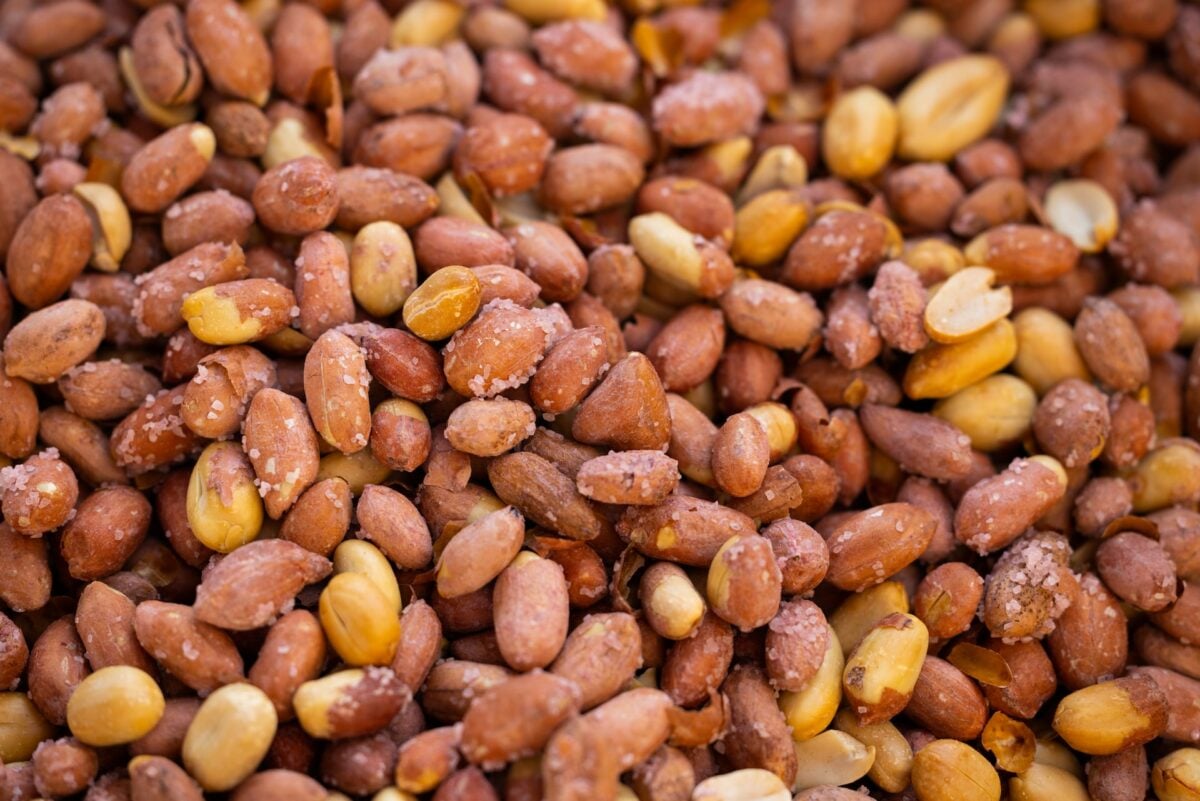
Unsalted, dry-roasted peanuts are ideal for canine nutrition. Although these peanuts aren’t as tasty as their salted counterparts, they offer many more health benefits. Dogs shouldn’t eat boiled peanuts because they often include harmful salts, spices, and other ingredients from the cooking process.
A fungal toxin known as aflatoxins has been linked to the consumption of peanuts and other legumes. Fungus belonging to the genus Aspergillus are responsible for the production of aflatoxins; these fungi are frequently found in association with legumes. A fatal case of aflatoxin poisoning is brought on by eating an excessive amount of raw peanuts. Poisoning triggered by aflatoxin can result in several severe symptoms in dogs, including liver failure.
This is why dried-roasted peanuts are the better option for canines, they reduce their exposure to aflatoxins drastically.
What Are the Potential Health Benefits of Dogs Eating Peanuts?
#1 Enhancing Heart Health
Eating peanuts regularly can help keep a dog’s heart healthy by reducing cholesterol. The high-calorie count of peanuts is largely due to the presence of healthy fats (Oleic acids, omega 6). When given in moderation, these fats can give a dog a lot of energy and improve its health. Just like in humans, it all has to do with moderation.
Furthermore, peanuts protect canines from developing thrombosis. Thrombosis is a condition where blood clots form inside blood vessels. Peanuts lessen the possibility of canine heart attacks because they inhibit the formation of thrombi which clog blood vessels.
#2 High Nutrient Composition
Peanuts’ vitamin and mineral content make them a great nutritional source. They help the dog’s coat and skin and boost its metabolism and brain power. Vitamin E, B6, niacin, and folates are some of these, and they’re also crucial for the production of red blood cells.
Peanuts are also high in fiber, protein, and healthy fats. Though peanuts may be high in fat, the majority of the fat in them is healthy and advantageous to a dog’s health when consumed in reasonable amounts. The beneficial properties of these fats allow them to lower cholesterol levels in the body.
Peanuts are likewise very rich in minerals, such as potassium, sodium, magnesium, and copper.
#3 Muscles Enhancement
In the same vein as other legumes, peanuts are a great way to get your protein without eating meat. Muscles need proteins for both growth and recovery from exercise and stress-related muscular breakdown.
Moreover, the protein in peanuts can help your dog gain lean muscle.
#4 Improvement of Wellbeing
Your dog’s health can be enhanced by feeding it peanuts in moderate amounts. Due to the high fiber content, peanuts are beneficial for canine digestion. The low glycemic index of peanuts is yet another perk. This means that feeding them to your dog won’t cause a wild spike in their blood sugar levels (and consequently won’t cause a drastic drop later on.)
Consistent blood sugar levels do not only reflect in stable energy levels, but also prevent your dog from producing unhealthy amounts of insulin – which in the long run may lead to diabetes.
What Are the Health Risks of Dogs Eating Peanuts?
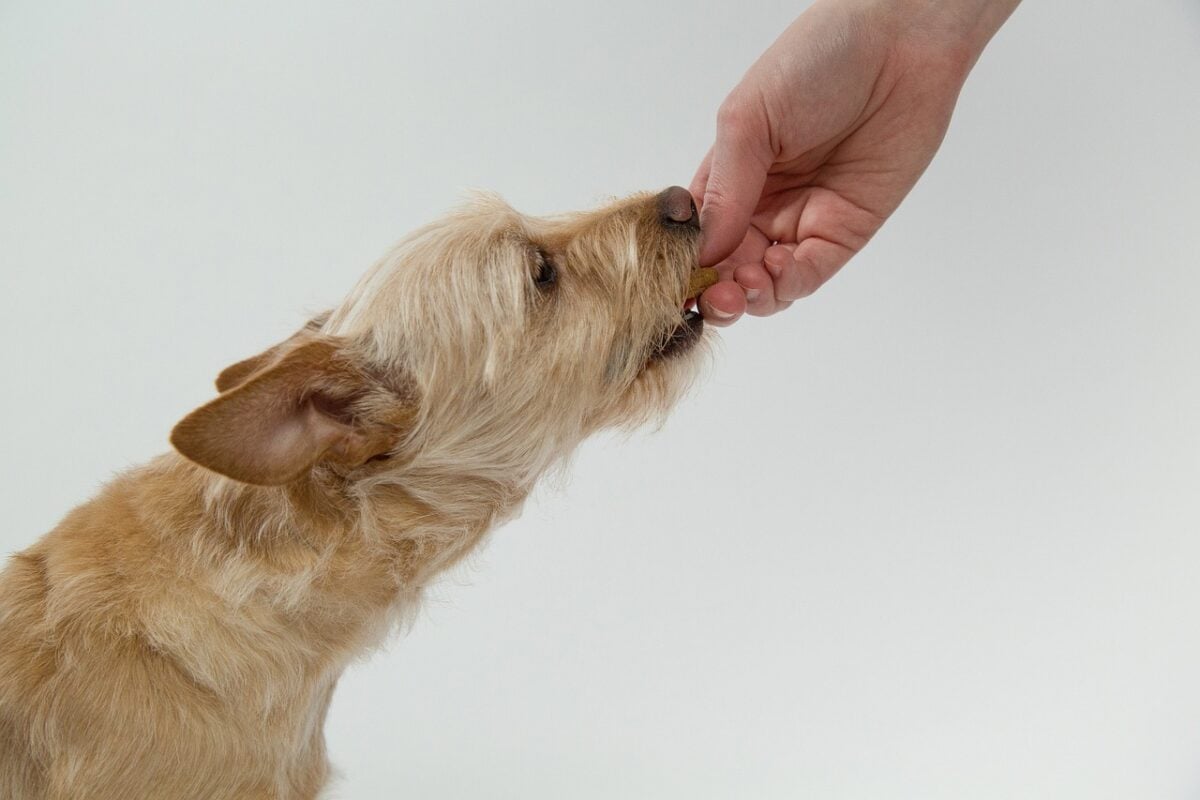
#1 Pancreatitis
Ingesting an excessive amount of peanuts can quickly lead to weight gain in your dog. Inflammation of the pancreas can develop from the ensuing obesity. Symptoms of pancreatitis in a dog include chronic vomiting, extreme lethargy, and weight loss.
Keep an eye out for these signs if your dog has a habit of eating excessive amounts of peanuts or other fatty foods. If you spot any of these symptoms, please schedule an appointment with your vet immediately, as this condition can very quickly become life-threatening.
#2 Sodium Poisoning
Excessive amounts of salted boiled peanuts can cause sodium toxicity in dogs. This means that the salt levels in your dog’s body will increase severely. Dogs can quickly become extremely dehydrated when exposed to even a mild excess of sodium ions.
Intestinal distress, fever, seizures, and in the worst of cases – death – can result from sodium overdose in dogs. In addition, canine hypertension can be brought on by eating too much salt. For this reason, monitoring your dog’s salt intake is important to ensure their blood pressure and cardiovascular health.
#3 Dangerous Additives
Unfortunately, few of us have ready access to peanuts that are both natural and freshly prepared. Therefore, we commonly purchase them from shops. In most cases, peanuts sold in stores will have extra ingredients. Too many additives—such as salts or chemicals—can harm your dog’s health.
#4 Allergic Reactions
In dogs, peanuts are a common cause of allergy reactions. If your canine companion has an allergy to peanuts, they could have a potentially fatal anaphylactic reaction. Even small amounts of peanuts might trigger an allergic reaction. If your dog has a peanut allergy, their immune system will react negatively to peanuts because it thinks they are toxic.
Dogs won’t have an allergic response if they only touch peanuts with their paws. It is only when they eat them or get them in their eyes, noses, or mouths that problems occur. Many different symptoms manifest in peanut-allergic dogs when they eat peanuts. Some examples are hives, redness, a tingling sensation in the tongue, trouble breathing, vomiting, diarrhea, a stuffy nose, etc.
If you have never fed your dog peanuts before, it is crucial to start by only giving them a small amount. Then observe them to ensure that they do not display any of the aforementioned signs, and also be prepared for a trip to the nearest vet clinic if any one of these should occur.
#5 Aflatoxin
As stated earlier, some peanut-growing fungi create a group of poisons called aflatoxins. Peanuts and other legumes are susceptible to this fungus because it thrives in warm, humid climates where they are cultivated, harvested, and stored. As a result of the peanuts’ porous and squishy subsurface pods, fungi have little trouble attaching themselves to them.
The carcinogenic effects of aflatoxin include an increased risk of liver cancer. Aflatoxin poisoning can occur in dogs from eating contaminated peanuts or breathing in dust from handling contaminated peanuts.
Though the fungus is eliminated during the roasting, boiling, or preparation of peanuts, the aflatoxins are not destroyed. Therefore, even peanut products that have been treated may still contain aflatoxins.
Should I Feed My Dog Peanut Butter?
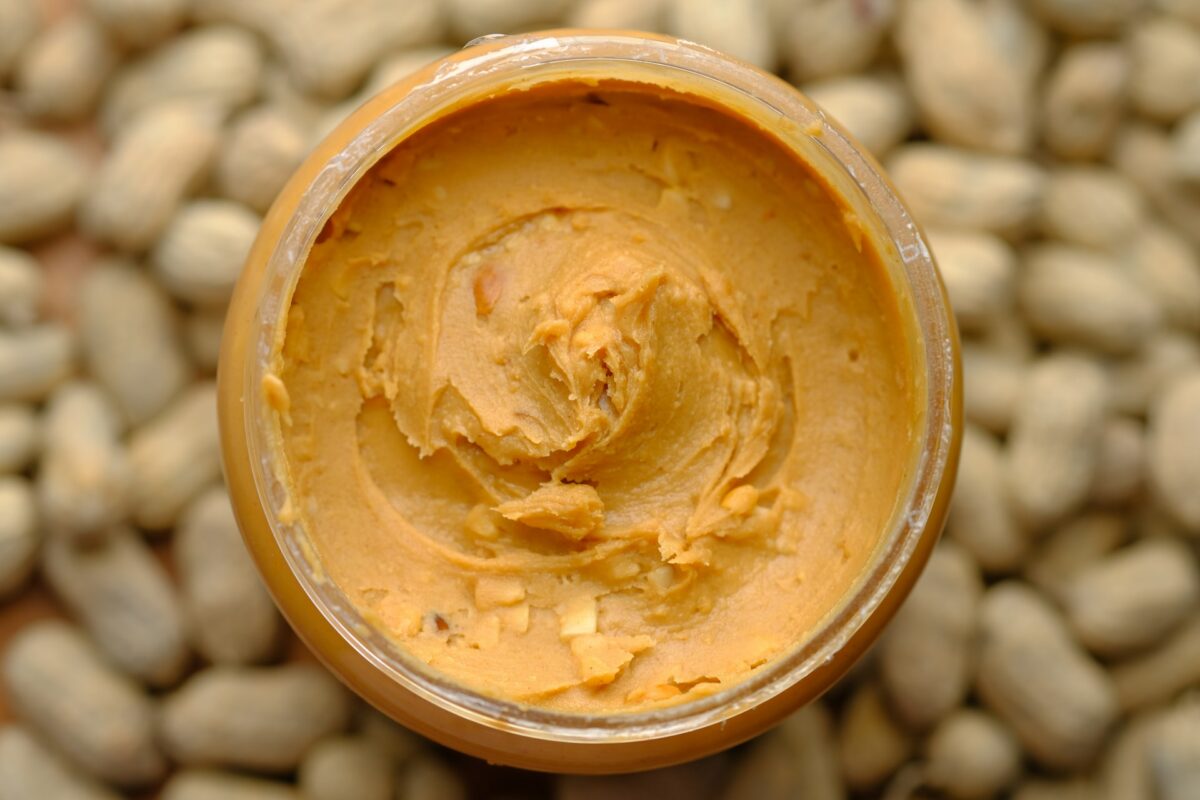
Giving your dog peanut butter is okay if it doesn’t comprise xylitol or other components that could trigger an allergic reaction. Pet owners may use natural peanut butter to occupy their dogs with a jigsaw toy or to cover up the taste of medication in dog treats if they know the peanut butter is safe. Also, who can resist their adorable reactions to the stickiness of peanut butter – it will undoubtedly keep them smacking with their tongues for ages.
Canines can safely consume peanut butter, but note that this does not apply to all kinds of nut butter. For example, cashew nut butter is fine for dogs, whereas macadamia nut butter is not. To give your pet something new, you should always double-check with your vet or another reliable source. More importantly, you should only offer them peanut butter in small amounts; excessive amounts can cause short-term stomach distress or obesity (which oftentimes lead to a wide range of other serious health concerns) in the long run.
Conclusion
Peanuts are a tasty treat for canines, but it’s important only to give them in moderation. It is also essential to ensure that they are as plain as possible. And especially, don’t feed them boiled peanuts.
There are also a lot of commercial dog treats that are good for your dog that you can give them without having to worry about them becoming sick.
Thank you for reading this article! If you are curious about other foods that might be dangerous or toxic for your beloved dog to consume, read our posts discussing if Dogs Can Eat Pistachios or Can Dogs Eat Cheese.
- Baby Lion Cubs Carried Across River by Mother Lion - April 16, 2024
- Death by Tiger at Drive-Through Zoo - April 16, 2024
- Elephant Crosses River Filled with Hippos - April 16, 2024

